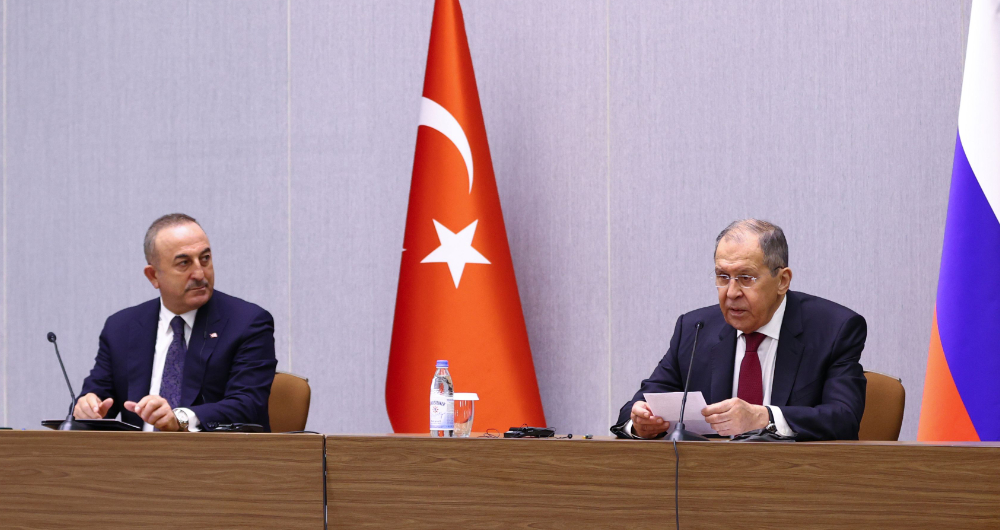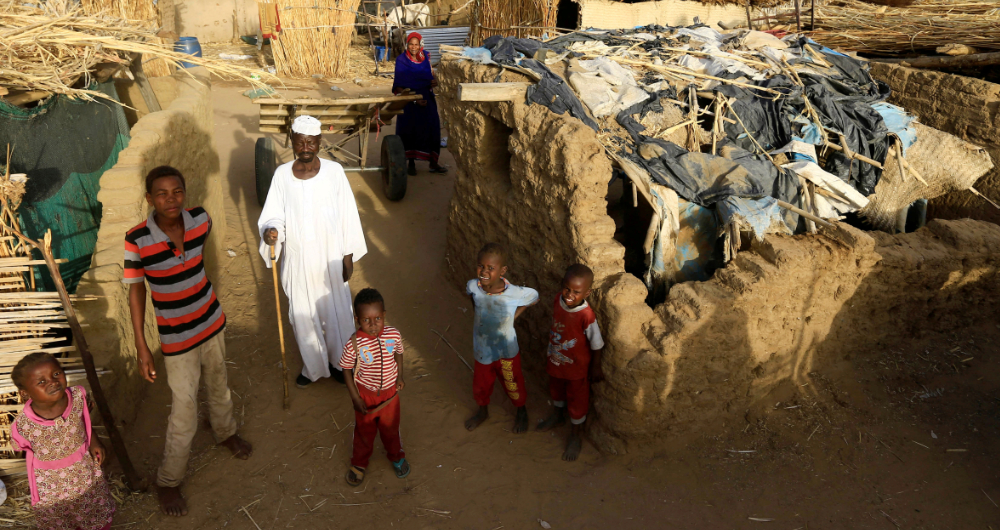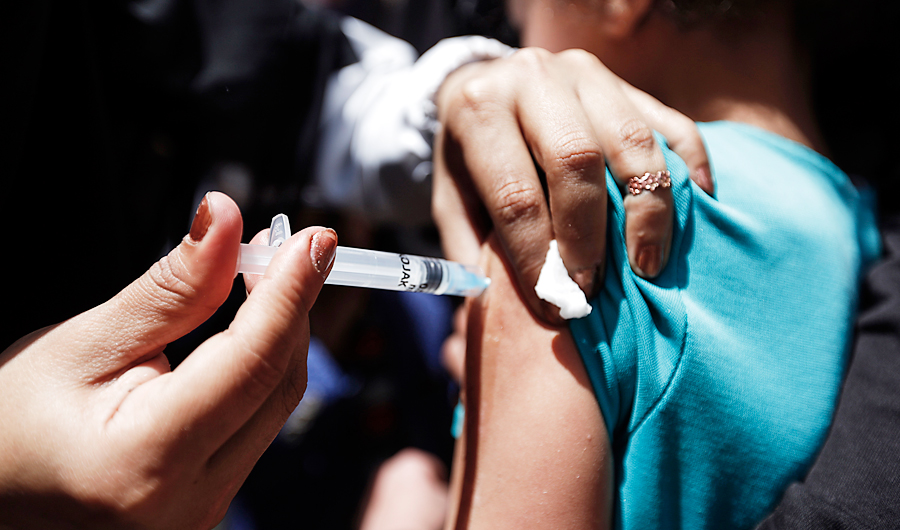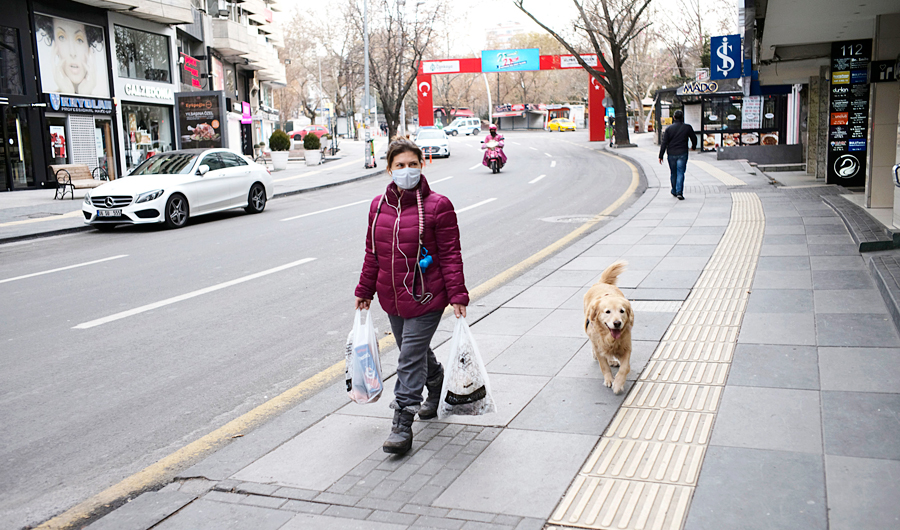Turkish foreign minister slams US, Western sanctions threat over military links with Russia
ANKARA: Turkey’s foreign minister on Tuesday slammed the threat of further US and Western sanctions on Ankara over its military cooperation with Russia as going “against our sovereign rights.”
And Mevlut Cavusoglu was joined by his Russian counterpart, Sergei Lavrov, in vowing to press ahead with strengthening links between the two countries.
The comments came as the two ministers met in the Russian resort city of Sochi to discuss regional and international issues ahead of a planned meeting of presidents Vladimir Putin and Recep Tayyip Erdogan under the high-level Russian-Turkish Cooperation Council.
Among bilateral issues, such as the construction of a nuclear power station and further development of the TurkStream gas pipeline, military cooperation with Ankara was praised by Moscow — despite US sanctions under Countering America’s Adversaries Through Sanctions Act (CAATSA), a 2017 law targeting Russian defense industry exports.
Lavrov branded American sanctions over Turkey’s purchase and activation of the Russian S-400 air defense system as an “attempt to promote the interests of the US industry with help of unfair methods,” and claimed that Turkey and Russia faced Western sanctions for simply pursuing independent policies.
“It (sanctions against Turkish defense industries) is against our sovereign rights. We will not give up on our intentions,” said Cavusoglu.
Increased military ties between Turkey and Russia in defiance of NATO pleas, risk causing an unprecedented rift with the alliance. However, Cavusoglu pointed out that the partnership between Turkey and Russia would not interfere with the NATO alliance.
Both Washington and NATO are concerned that Turkey’s activation of the Russian defense system could give the Kremlin an insider look at the alliance’s defense capabilities in the region.
Over the past year, Erdogan and Putin have talked about 15 times, and according to Oxford University Middle East analyst Samuel Ramani, NATO will be displeased about the Russia-Turkey meeting, especially as both sides had pledged to expand their military cooperation.
“On Syria and Libya, it is impossible to know what was discussed, but there is nothing to suggest that Russia would green-light a Turkish expansion in either country,” he told Arab News.
Lavrov was on Wednesday expected to meet Mohammed Syala, foreign minister of the Tripoli-based Government of National Accord (GNA), to discuss regional and Libya-related issues.
On the Libyan conflict, Lavrov said both sides would “continue to facilitate normalization of the situation in Libya in every possible way via a comprehensive intra-Libyan dialogue.”
Ramani said that defiance of Western sanctions was a core tenet of Russian foreign policy which Moscow saw as a means of subverting the independent foreign policy of states opposed to the US interests.
“Russia and Turkey share this view of US sanctions policy more broadly. They extend this logic to US sanctions on Iran and Venezuela, which both Russia and Turkey see as punishments for Tehran and Caracas’ anti-American actions,” he added.
However, recently developed avenues of cooperation between Russia and the Kurdish-led Syrian Democratic Forces (SDF) are likely to draw the ire of Ankara.
On the day of the meeting between the two foreign ministers, an SDF official confirmed more observation points would be built around the Syrian town of Ain Al-Issa by the Russian military. The move falls under an agreement between Russia and the SDF to decrease attacks from Turkish-controlled areas nearby.
But Turkey expects Syrian Kurdish People’s Protection Units (YPG) to withdraw from the city completely. Turkey also blocks the Syrian regime’s efforts to retake the rebel bastion of Idlib despite Russian support to Syrian President Bashar Assad’s forces.
Rauf Mammadov, resident scholar at the Middle East Institute, told Arab News that NATO would most probably continue to monitor the complex web of relations between Moscow and Turkey, covering the geography that now stretches from Libya to the South Caucasus.
“Ankara’s nascent assertive and independent foreign policy has certainly raised eyebrows in the transatlantic community. Still, it has failed to yield any concrete actions mainly due to the disunity among the pact members.
“This, in return, emanates from the conflicting interests of some NATO members concerning Turkey’s actions in Libya and other places,” he said.
In stark contrast to Syria, where Russia has unequivocally backed the Assad regime, Mammadov noted that Moscow had shown latent support to Libyan strongman Khalifa Haftar, commander of the Tobruk-based Libyan National Army, by oscillating between Tobruk and Tripoli.
“It was Ankara’s active engagement in Libya that drove the Kremlin’s opposition against the GNA. Thus, Moscow is expected to continue to counteract Turkey’s expansion in Libya, especially given the significance of oil and gas-rich southern regions,” he added.
Some experts pointed out that recent US sanctions approved by outgoing President Donald Trump’s administration put Erdogan to the test for identifying his allies and acting accordingly in 2021.
Ozgur Unluhisarcikli, Ankara office director of The German Marshall Fund of the US, said it was not surprising that Russia would like to use US sanctions against Turkey as an opportunity to further draw a wedge between the Turks and NATO.
“At this point, Turkey will need to decide whether to escalate the tension with the US in reaction to the recent imposition of CAATSA sanctions or de-escalate with the goal of finding a solution,” he added.

Turkey’s top court rules philanthropist Kavala’s rights not violated -AnadoluTurkey facing delayed China vaccine amid controversial extradition deal




